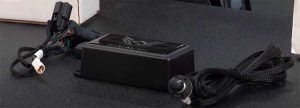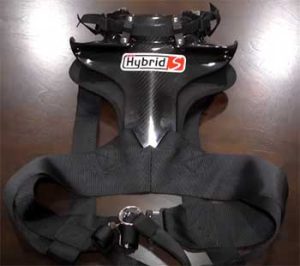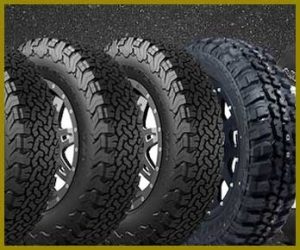When it comes to garage floor coatings, the market is flooded with various options, leaving homeowners and businesses alike feeling overwhelmed. Two of the popular garage floor coatings available today are polycuramine and polyaspartic floor coatings.
In this article, we’ll dive deep into the world of these two coatings, comparing their features, benefits, and potential drawbacks to help you make an informed decision about which one is best for your garage floor.
A Brief Comparison Table
| Feature | Polycuramine | Polyaspartic |
| Composition | Hybrid of polyurea, polyurethane, and epoxy | Closely related to polyurea |
| Durability | Exceptional | Excellent |
| Chemical Resistance | Superior | High |
| Abrasion Resistance | High | High |
| Application Process | Forgiving | Faster, but less forgiving |
| Pot Life | Longer | Shorter |
| Curing Time | Moderate | Faster |
| UV Resistance | Moderate | High |
| Maintenance | Low | Low |
| Cost | Moderate | Higher |
| Moisture Sensitivity | Low | Higher |
| Suitable for DIY | Yes | Less ideal |
| Indoor/Outdoor Use | Indoor preferred | Both indoor and outdoor |
The Rise of Polycuramine and Polyaspartic Garage Floor Coatings
Long gone are the days when epoxy coatings were the only option for protecting your garage floors.
The introduction of polycuramine and polyaspartic coatings has revolutionized the industry, offering enhanced durability, faster curing times, and greater resistance to various environmental factors.
The demand for these cutting-edge garage floor coatings has grown tremendously in recent years, and with good reason.
What Is Polycuramine Coating?
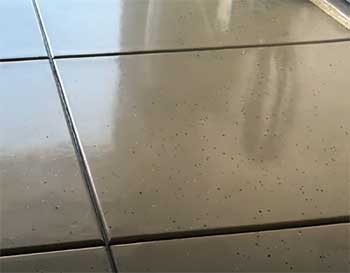
Polycuramine is a cutting-edge garage floor coating developed by combining the best properties of polyurea, polyurethane, and epoxy.
This unique combination creates a highly resilient, durable, and long-lasting coating that offers superior protection for your garage floor.
It is known for its chemical and abrasion resistance, making it an ideal choice for garages that are subjected to heavy use and harsh conditions.
What Is Polyaspartic Floor Coating?
Polyaspartic is another innovative garage floor coating option that’s closely related to polyurea. It offers quick curing times and is highly resistant to UV exposure, making it ideal for both indoor and outdoor applications.
It also boasts impressive chemical and abrasion resistance, similar to polycuramine.
Comparing Polycuramine And Polyaspartic Garage Floor Coatings
Now that we have a basic understanding of what these coatings are, let’s examine their similarities and differences in terms of application, durability, and maintenance.
- Application
Polycuramine and polyaspartic coatings are both relatively easy to apply, with both being rolled or sprayed on the floor’s surface. However, polyaspartic coatings have a shorter pot life and set up quickly, which can make the application process more challenging for DIYers or inexperienced professionals.
On the other hand, polycuramine’s longer pot life makes it more forgiving, allowing for adjustments during the application process.
- Durability
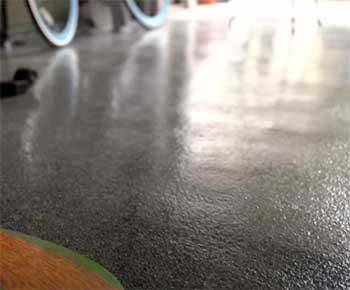
Both polycuramine and polyaspartic floor coatings are known for their impressive durability and resistance to harsh conditions.
They can withstand heavy loads, chemical spills, and extreme temperatures without breaking down or deteriorating.
However, polycuramine’s unique formulation gives it a slight edge in terms of overall durability and resistance to wear and tear.
- Maintenance
When it comes to maintenance, both polycuramine and polyaspartic coatings require minimal upkeep.
Regular cleaning with mild soap and water is usually sufficient to keep them looking pristine.
However, polycuramine’s exceptional chemical resistance makes it easier to clean up spills and stains without the risk of damaging the coating.
Also Read: Differences Between EpoxyShield Professional and Epoxy Garage Floor.
Frequently Asked Questions (FAQ)
Polycuramine is often considered the toughest garage floor coating due to its unique formulation that combines the best properties of polyurea, polyurethane, and epoxy. It offers exceptional durability, resistance to wear and tear, and can withstand heavy loads and harsh conditions without deteriorating.
Polyurea and polycuramine are not the same thing, although they share some similarities. Polycuramine is a hybrid coating that combines the properties of polyurea, polyurethane, and epoxy. While polyurea is a stand-alone coating that offers excellent flexibility, chemical resistance, and durability, polycuramine takes it a step further by enhancing these qualities with the added benefits of polyurethane and epoxy.
While polyaspartic floor coatings have many advantages, they also have some drawbacks. Some potential disadvantages include:
1. Shorter pot life: The quick curing times of polyaspartic coatings can make them challenging to work with, especially for inexperienced applicators or DIY enthusiasts.
2. Higher cost: Polyaspartic coatings tend to be more expensive than other garage floor coatings like epoxy or polycuramine.
3. Sensitivity to moisture: Polyaspartic coatings can be more sensitive to moisture during the application process, which may result in bubbling or other issues if not handled properly.
The Verdict: Which Garage Floor Coating is Right for You?
Ultimately, choosing between polycuramine and polyaspartic garage floor coatings comes down to your specific needs and preferences. If you value a more forgiving application process and a higher degree of chemical resistance, polycuramine may be the better option.
However, if you’re looking for a faster curing time and UV resistance, polyaspartic could be the way to go.
Both coatings offer excellent durability, low maintenance, and impressive resistance to wear and tear, making them fantastic choices for protecting your garage floor.
Regardless of which option you choose, you can rest assured that you’re investing in a high-quality garage floor coating that’s built to last.

